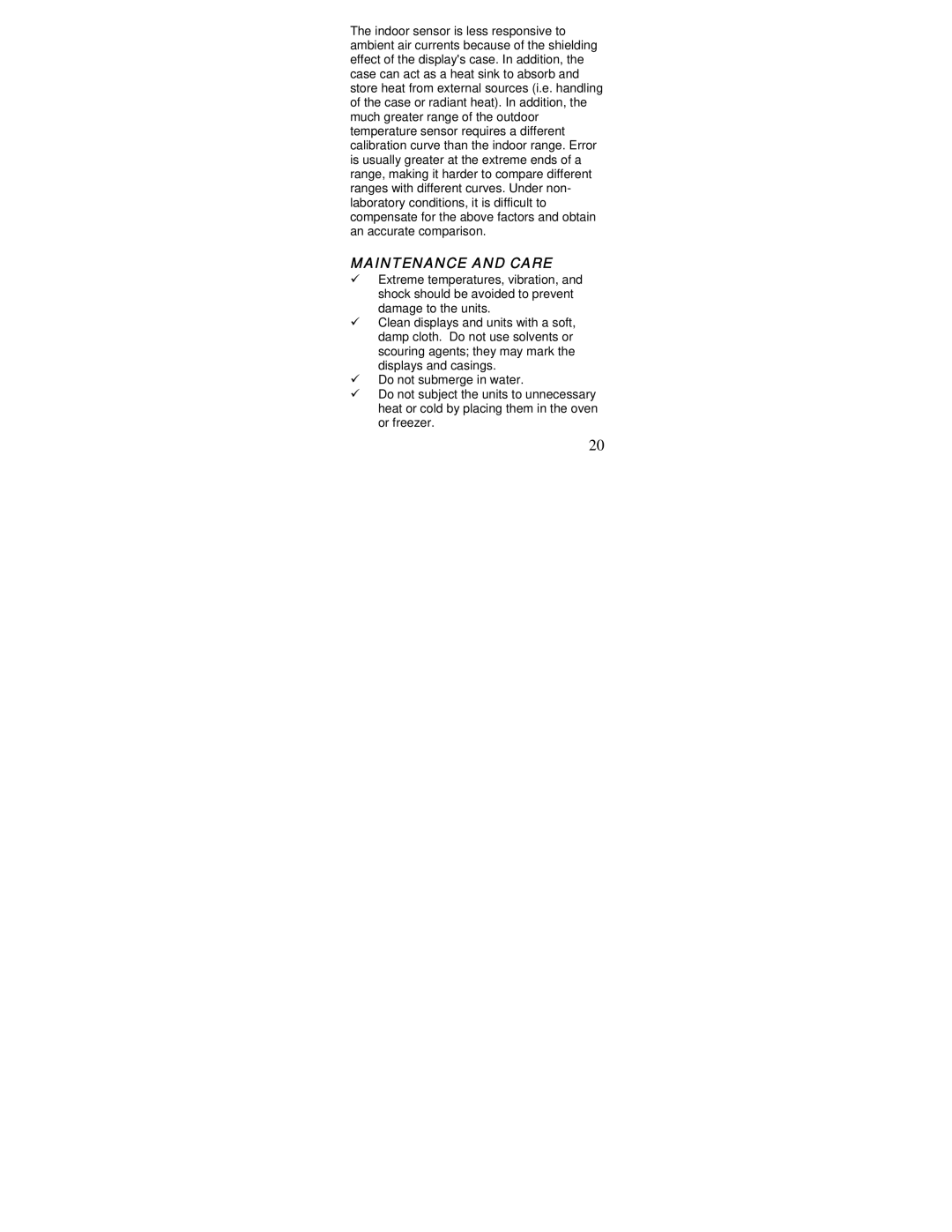The indoor sensor is less responsive to ambient air currents because of the shielding effect of the display's case. In addition, the case can act as a heat sink to absorb and store heat from external sources (i.e. handling of the case or radiant heat). In addition, the much greater range of the outdoor temperature sensor requires a different calibration curve than the indoor range. Error is usually greater at the extreme ends of a range, making it harder to compare different ranges with different curves. Under non- laboratory conditions, it is difficult to compensate for the above factors and obtain an accurate comparison.
MAINTENANCE AND CARE
9Extreme temperatures, vibration, and shock should be avoided to prevent damage to the units.
9Clean displays and units with a soft, damp cloth. Do not use solvents or scouring agents; they may mark the displays and casings.
9Do not submerge in water.
9Do not subject the units to unnecessary heat or cold by placing them in the oven or freezer.
20
